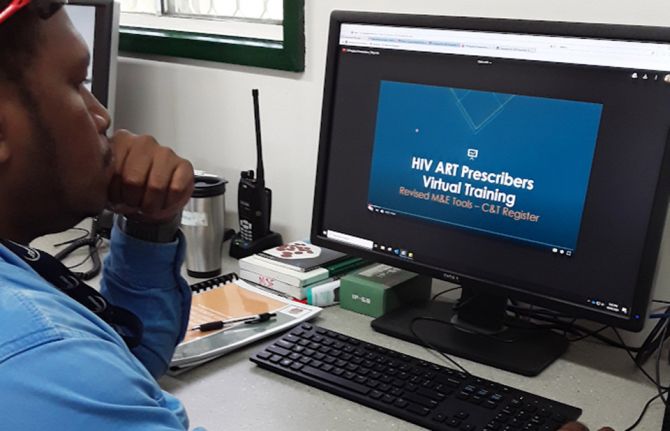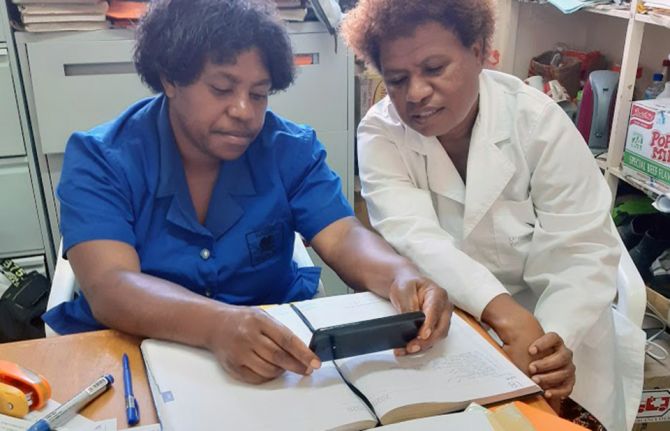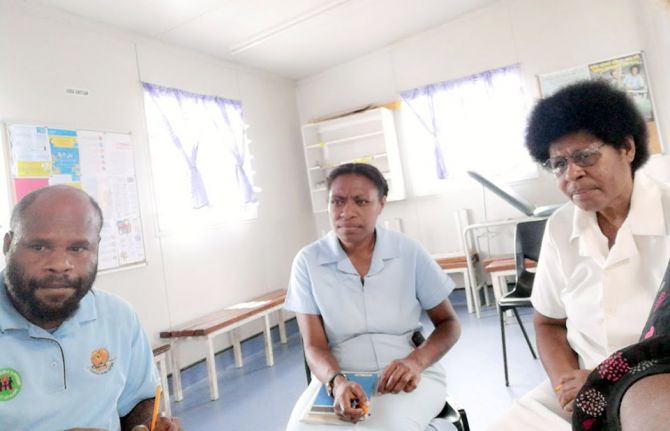



Feature Story
Virtual training for antiretroviral therapy prescribers launched in Papua New Guinea
04 August 2020
04 August 2020 04 August 2020The National Department of Health has launched the first-ever virtual training for prescribers of antiretroviral therapy in Papua New Guinea. Using Google Classroom, 21 video lectures with a total of more than six hours of content, covering HIV treatment, care and service delivery guidelines, as well as monitoring and evaluation tools, are provided to the learners. The content includes video lectures and associated assessment materials, which have to be completed within seven days after enrolment.
Thirty days since the launch, 105 participants have been successfully enrolled, of whom 70% had been unable to participate in any refresher training for the past three years.
Google Classroom requires an Internet-ready gadget—a smartphone, a laptop or a tablet— Internet access and a valid email address to be enrolled. Since some antiretroviral therapy prescribers do not have an email address, some local clinics have set up onsite classrooms where multiple trainees can join the online course from one computer, learning as a group.
The National Department of Health has successfully got support from partners, including UNAIDS, the World Health Organization, USAID, United States Centre for Disease control, World Vision and FHI 360, to cover US$ 15 of Internet access per participant, using cards with a seven-day data plan from a nationwide Internet provider network.
“Crises can also be opportunities and the impending COVID-19 crisis pressed us to find an innovative solution. The virtual antiretroviral therapy prescribers training shifted the goal posts, showing us that we could respond effectively and offer solutions. I am so proud of the partners that supported us in this and now we also have a more cost-effective way of training across the enormous geographic barriers that we find here in Papua New Guinea,” said Peniel Boas, Manager, Sexually Transmitted Infection and HIV Programme, National Department of Health.
The participants provided positive feedback on the training. “I really enjoyed learning a lot of new information. I would recommend that any sexually transmitted infection/HIV refresher training be conducted in this manner in the future, to minimize costs and provide this opportunity to health-care workers who otherwise do not have the possibility to attend,” said a nurse from the Leguava Clinic in West New Britain Province.
“The training provides relevant content which is well presented by the facilitators. I enjoyed the quizzes at the end of each presentation. The bonus being that it doesn’t take the worker away from their worksite, it doesn’t incur travel costs and it allows the participants to learn at their own pace. Also, the fact that the facilitators are still available on the platform is a great opportunity for ongoing mentorship,” said a student from the Innanaka Clinic in Hela Province.
The team behind this initiative comprises members of the National HIV Technical Working Group, including the UNAIDS country office, and lecturers, content providers, online class moderators and others. Google Classroom is free for use and all materials are stored in Google Drive using a Google account.
The virtual trainings will be followed by supervisory visits and onsite mentoring to be conducted by the sub-teams of the National HIV Technical Working Group. Due to this successful experience, this format is now being considered for other trainings in Papua New Guinea.
“The quick and strategic action to offer the antiretroviral therapy prescribers training virtually has saved lives here in Papua New Guinea. Without it, we could not have effectively rolled out the new HIV treatments that are combating HIV drug resistance,” said David Bridger, UNAIDS Country Director for Papua New Guinea.



